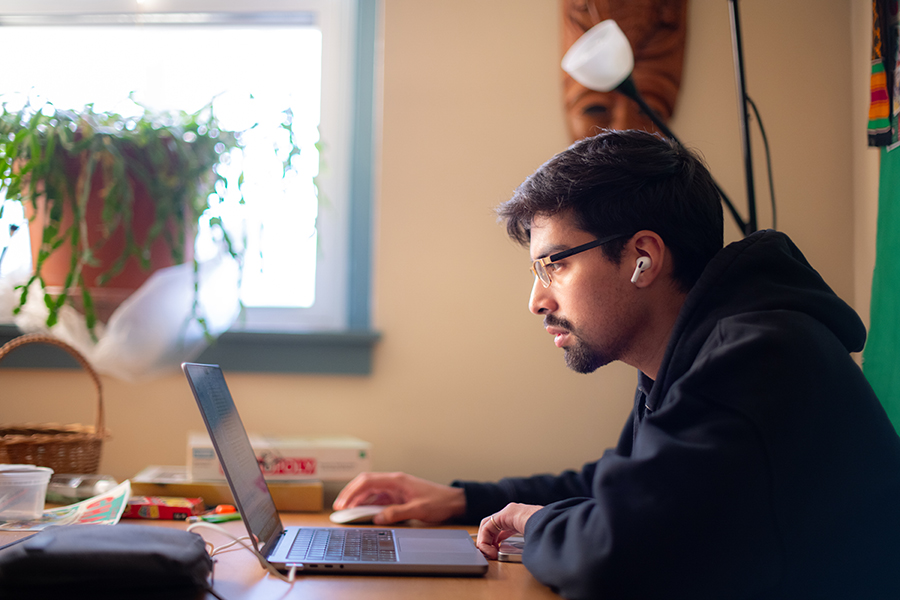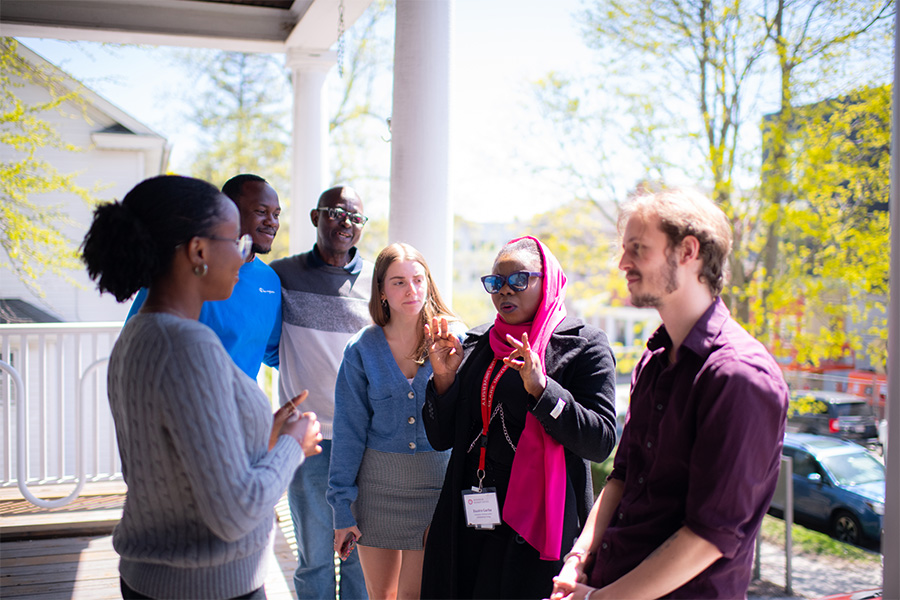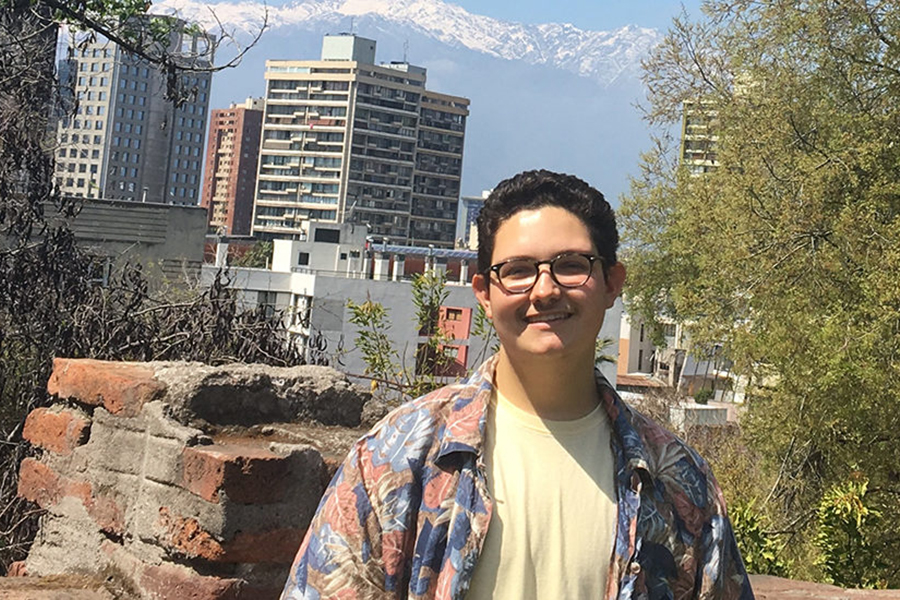Displaced persons are on the move, on a global scale. Respond with understanding, skills, and experience.

Two ways to learn

100% Online/Asynchronous Graduate Certificate
Recommended for practicing mid-career professionals. Asynchronous online delivery is Ideal for students unable to attend courses on the Clark campus – learn from where you are, when you choose, and build a networked community of connections with your cohort.
Get Details
Program Start: Fall Semester
Three Required Courses:
Summer: Research Methods for Forced Migration (IDCE 30108)
Fall: Refugees, Forced Migration and Belonging (IDCE 30297)
Spring: Forced Migration and the City (IDCE 30107)

In-Person Graduate Certificate
Ideal for local students at any level of professional experience. Choose from a blend of in-person and online courses.
Get Details
Program Start: Spring, Summer, or Fall semesters
Three Required Course Units: 1 core course: Refugees, Forced Migration, and Belonging
+ 2 Electives
Sample Courses:
- Program Start: Spring, Summer, or Fall semesters
- Three Required Course Units: 1 core course: Refugees, Forced Migration, and Belonging
- + 2 Electives
- Program Start: Spring, Summer, or Fall semesters
- Three Required Course Units: 1 core course: Refugees, Forced Migration, and Belonging
- + 2 Electives
Experienced Faculty, Committed Students

Learn within the department’s global network of researchers, scholars, practitioners, and activists who will help you turn your learning into action in our communities, across the country, and around the world.
Student and faculty investigators pursue provocative, far-reaching questions:
- How do boundaries and borders that shape movement emerge, and how they are maintained, controlled, and transformed?
- How do policies and organizations designed to manage or assist migrants, refugees, and displaced people intersect with ideas about citizenship, integration, sustainability, gender, development, and belonging?
- What is the role of ethnic, racial, and religious identities in spurring movement and in shaping the reception of newcomers by societies?
Learning Beyond the Classroom
Outside of class, you will have the opportunity to learn directly from local and global refugee services communities through experiential learning, research, and internships. Our students have investigated topics such as refugee participation in community development initiatives, refugee access to higher education, and refugee livelihoods in the city of Worcester.
Our partnerships with refugee stakeholders help you develop a complex understanding of refugees as locally sited but globally situated. They include:
- Participate in experiential research with refugee organizational partnerships in Amman, Beirut, Cairo, Casablanca, Thessaloniki, Athens, and Kampala.
- Produce important data and information for Worcester stakeholders.
- Work with refugee organizations to identify best practices for service organizations to address their needs and priorities.

Professional skills for greater impact, better outcomes
We equip our students with the key skills to identify why migration occurs, how it occurs, how policies that govern the political response to migration can be improved, and how assistance institutions can be strengthened.
Students develop critical methodological skills for work with mobile, hidden, and vulnerable populations:
- Project management for social change
- Grant writing
- Qualitative, quantitative, and narrative research and analysis
- Knowledge of partnership approaches and communication competency
- Outreach to community organizations
Knowledge and Skills into Action
Whatever work you choose to pursue — policy, advocacy, or service — your contributions are informed by a deeper understanding of the dynamic and interrelated processes of displacement, and the ways in which individuals experience them.
Practitioners may work locally, nationally, and internationally in the following fields:
- Refugee and forced migration policy
- Humanitarian relief organizations
- Refugee settlement, resettlement, and integration organizations
- International NGOs
- National refugee resettlement agencies
Example organizations:
- Refugee and Immigrant Assistance Center
- National Refugee Resettlement Agencies and local affiliates
- State Department Bureau for Population, Migration and Refugees
- Migration Policy Institute
- United Nations High Commission for Refugees
Academic Excellence. Global Reach. Career Success.
Join our supportive community of scholars. Ready to take the next step?

